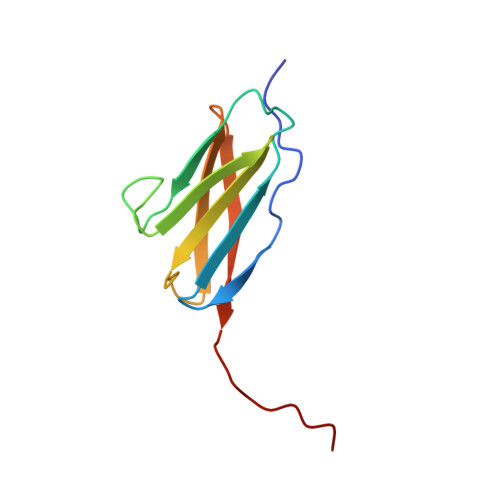Structural basis for unfolding pathway-dependent stability of proteins: Vectorial unfolding vs. global unfolding
Yagawa, K., Yamano, K., Oguro, T., Maeda, M., Sato, T., Momose, T., Kawano, S., Endo, T.(2010) Protein Sci
- PubMed: 20095049
- DOI: https://doi.org/10.1002/pro.346
- Primary Citation of Related Structures:
2RQ8 - PubMed Abstract:
Point mutations in proteins can have different effects on protein stability depending on the mechanism of unfolding. In the most interesting case of I27, the Ig-like module of the muscle protein titin, one point mutation (Y9P) yields opposite effects on protein stability during denaturant-induced "global unfolding" versus "vectorial unfolding" by mechanical pulling force or cellular unfolding systems. Here, we assessed the reason for the different effects of the Y9P mutation of I27 on the overall molecular stability and N-terminal unraveling by NMR. We found that the Y9P mutation causes a conformational change that is transmitted through beta-sheet structures to reach the central hydrophobic core in the interior and alters its accessibility to bulk solvent, which leads to destabilization of the hydrophobic core. On the other hand, the Y9P mutation causes a bend in the backbone structure, which leads to the formation of a more stable N-terminal structure probably through enhanced hydrophobic interactions.
- Department of Chemistry, Graduate School of Science, Nagoya University, Chikusa-ku, Nagoya 464-8602, Japan.
Organizational Affiliation:
















